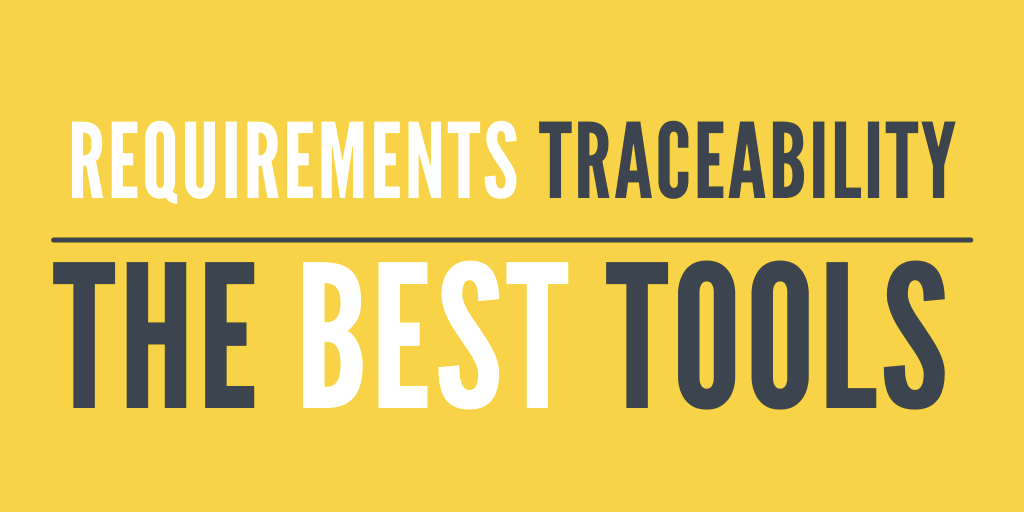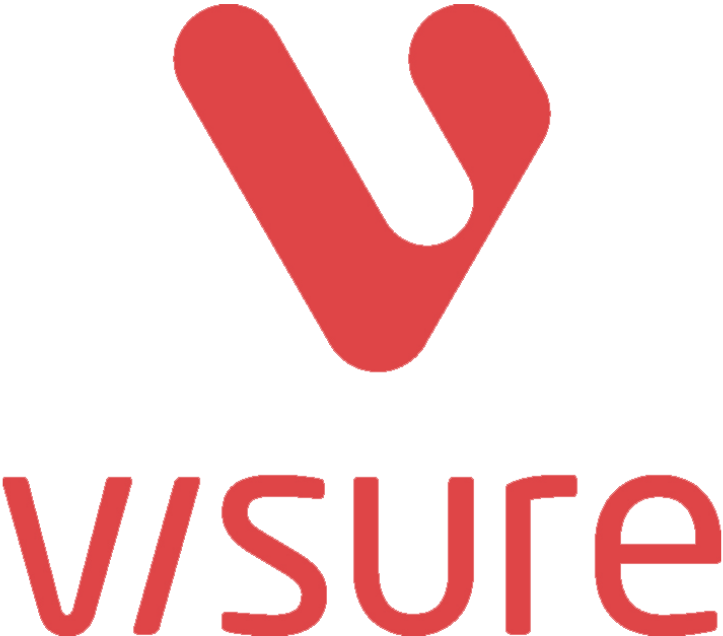What is Requirements Traceability?
Requirements traceability is a sub-discipline of requirements management in software development. It serves to ensure that the requirements defined for a system are duly tested (with respect to test parameters and protocols) and that the requirements are linked at every point during the verification process. Requirements traceability is also one of the key methods to counter the growing complexity of product development. However, in some industries, traceability is a must and forms an integral part of periodic audit and review efforts.
What are the Different Types of Requirements Traceability?
There are three types of requirements traceability - forward (allocation), backward (derivation), and bidirectional traceability. Each helps trace a requirement throughout the software development lifecycle in the following manner:
- Forward - requirements are traced forward through other development artifacts, including test cases, test runs, and issues.
- Backward - requirements are traced backwards from customer needs to identify the origin of each software requirement.
- Bidirectional - tracing the code from requirements and vice-versa throughout an entire Software Development Life Cycle (SDLC).
Depending on which industry you work in, requirements management and traceability can help teams do many things, including:
- Assess risks and the overall impact of a change before it’s made
- Manage changes throughout the process and avoid scope creep
- Ensure quality standards are met to achieve compliance
- Control development costs by avoiding costly engineering rework
- Guarantee adequate test coverage of requirements before a release
- Improve visibility into the process for the entire team and stakeholders.
Requirement Traceability Matrix Tools
Traceability identifies and documents the lineage of each requirement and can be managed and/or maintained through the requirements traceability matrix (RTM). Requirement Traceability Matrix gives an overview of all requirements, links them to test cases and helps ensure that requirement coverage is maintained at 100%. RTM can be designed using a spreadsheet or even on paper - however, to avoid the need to maintain separate artifacts, an integrated requirements management system is usually the best choice.
Features for Choosing a Requirements Traceability Tool
Now that we understand its importance, how should you go about looking for tools to help you manage and trace your project’s requirements? There are a number of key features that you should keep an eye out for, which can drastically improve your work efficiency and quality of life:
- Multiple views of requirements, including grids, boards and documents
- Ability to trace requirements to tests, code, builds and development activities
- Flexible and customizable reporting, including requirements traceability reports
- Requirement workflow and signoff with support for electronic signatures
- Ability to version requirements, with support for baselines and snapshots
- Audit trail of all changes made to requirements
- Rich content editing, including formatted text and diagrams
- Support for different types of requirements such as user stories, use cases and scenarios
- Ability to attach files, images and other documents to requirements
- Collaboration features including chat, email, comments and discussions

Best Requirements Traceability Software for 2026 Test Management
We reviewed a number of requirements traceability tools and software on the market and can recommend the following:
#1. SpiraTeam

SpiraTeam is an integrated requirements, ALM, DevOps, and Agile planning solution by Inflectra. This turnkey platform is ideal for regulated industries where audit trials and end-to-end traceability for compliance are mandated. SpiraTeam helps agile teams of all sizes manage their software development and testing, further enhanced by cutting-edge AI capabilities to make your life easier (and products more secure). SpiraTeam can quickly generate BDD scenarios for specific requirements, identify potential overlooked risks, suggest potential mitigations for risks, analyze requirements against common frameworks like EARS, and much more.
With SpiraTeam, easily manage your project requirements, test cases, bugs, and tasks. Agile planning, baselining and robust configuration management, coupled with source code management, and document collaboration functionality gives teams the ability to manage changes and ensure quality throughout the product development and testing cycle. SpiraTeam comes with a built-in, powerful traceability and compliance features such as electronic signatures, task and workflow management, requirements mapping, and version control. Its executive dashboards and powerful reporting engine provides visibility across product definition, design, building, and testing phases and shows relationships and dependencies between teams. The platform integrates with over 60 tools on the market and is available on-premise and cloud-hosted (AWS, or private cloud).
Pricing starts at $40.20 per user, per month (for 30 concurrent users). There is also a 30-day free trial.
#2. codeBeamer

codeBeamer ALM by Intland Software is an integrated Application Lifecycle Management tool that covers the entire process of software product development. It provides end-to-end traceability and enhanced collaboration throughout delivery, from requirements through risk management, development, QA and testing all the way to release and operations. codebeamer offers digital workflows for collaborative development, efficiency in product line engineering, and regulatory compliance. The platform comes with preconfigured templates and compliance support in Agile & DevOps environment.
Pricing starts at $600.00 per user, per year. There is a free version.
#3. Modern Requirements

Modern Requirements (also known as Modern Requirements4DevOps) is a cloud-based solution designed to help businesses in industries such as healthcare, banking, and technology manage requirements for multiple projects. The software reduces time to value delivery by providing users with end-to-end traceability, process automation, online document authoring, and visualization support. Modern Requirements4DevOps enables requirements authoring and collaboration using smart docs, diagramming, reporting, trace analysis, baselining, review management, wireframing, and other tools for collaboration & elicitation. The tool is a built-in extension to Microsoft's Azure DevOps, TFS or VSTS.
Pricing is available on request.
#4. Visure Requirements

Visure Requirements is a requirements engineering life-cycle solution capable of streamlining requirements processes, allowing for better collaboration and increasing quality. Visure offers ftraceability, risk management, test management, bug tracking, requirements testing, requirements quality analysis, requirement versioning and baselining, and reporting in multiple file formats. Users can set up role-based permissions, compare versions and configure process workflows. Data analysts can create relationships, generate hierarchies, manage traceabilities and automatically capture requirements from MS Excel, Outlook and MS Word. Visure supports compliance templates for ISO 26262, IEC 62304, IEC 61508, CENELEC 50128, DO-178B/C, FMEA, SPICE, CMMI, etc. The platform integrates with several third-party solutions, such as Accompa, Jira, MS Sharepoint and Salesforce.
Pricing information is available on request.
#5. Jama Software

Jama Connect® is a product development platform that helps the hardware and software teams connect siloed development, testing and risk management activities to provide end-to-end compliance, risk mitigation, and process improvement. The platform lets users define, align and execute projects, reducing lengthy cycle times, effort spent on proving compliance and wasteful rework. Jama Connect supports multiple, concurrent development methodologies and includes traceability that enables management of complex processes. The tool gets teams up-and-running with frameworks that align to standards, building confidence in compliance with regulations, and let’s teams easily show auditors how decisions were made with reports.
Pricing starts at $700 per named user, per year.
#6. Xebrio

Xebrio is a comprehensive requirements management ecosystem with end-to-end traceability throughout the project lifecycle. Its requirements approval workflow is designed to engage stakeholders and ensures complete transparency during the requirements gathering process. With Xebrio, users can freeze the requirements for compliance purposes and the tool is flexible enough to accommodate changes in requirements through its requirements versioning feature.
Xebrio covers every project or product development phase, starting from requirements to the release cycle, without the need for an additional tool or plugin. Its end-to-end traceability aspect ensures users can link requirements to test cases, tasks, bugs, and trace requirements across any project development lifecycle phase.
Xebrio’s real-time collaboration feature is designed to make remote teams productive and ensures that all project-related discussions stay organized and transparent.
Pricing starts from $40/user per month with a 14-day free trial. There's a discounted pricing model for start-ups and small teams, which starts from $1/user/month.
#7. TraceCloud

TraceCloud is a project requirements management and traceability solution. TraceCloud provides a lightweight framework for large projects, where change management, change control & traceability are critical. The tool helps businesses collaborate, define, manage, and deliver on their customers' requirements. TraceCloud offers a defects, requirements, and test management system, two-way Excel and Word integration, and a change control board and approval workflow engine. The platform is available in the cloud or on-premises.
Pricing starts at $30.00 as a flat rate, per month. There is a free version and a free trial.
#8. Orcanos

Orcanos' Requirements Management Tool has been designed for requirements handling, ranging from end-to-end traceability to test management features to collaboration features. The tool is an option for traceability matrix management between any ALM or QMS artifact. Orcanos' Requirements Management tool helps users and stakeholders to respond to quality processes such as requirements, test cases, FMEA risk items, customer complaints, and CAPA compliance. Orcanos integrate Risk Management into the various stages of product development and QMS processes, generating data for insights.
Pricing starts at $990 per month (for ALM), up to $1250 month for Premium (ALM + QMS)
#9. Helix RM

Helix RM is a requirements management tool by Perforce that helps teams to gather and share requirements. Users can track and trace requirements across the application’s lifecycle, reuse them, and get approval. Helix RM can also create a requirements traceability matrix. Users can identify the root causes of problems in a project, and link together requirements, test cases, results, or source code. Requirements re-usability can reduce validation time, amount of rework needed, and help teams maintain consistency across projects. Helix RM comes with an impact analysis feature to run various what-if scenarios, as well as track software bugs and manage related tasks. Helix RM integrates with Microsoft products, Slack, Atlassian Jira and Bamboo, GitHub, JetBrains, IBM Rational DOORS, etc.
Pricing information is available on request.
#10. Enterprise Architect

Sparx Systems Enterprise Architect is an integrated modeling platform with built-in requirements management capabilities. The platform provides support for enterprise-wide, cloud-enabled collaboration that captures an integrated view of what is, what will be, and the journey there. This multi-user, graphical tool is designed to help teams build maintainable systems that have complete traceability baked in. Featuring a high-performance model repository, Enterprise Architect can handle extremely large models and can accommodate large, globally-dispersed teams allowing them to collaborate and share the same view of the enterprise.
Pricing starts at $229.00 as a flat rate. There is a free trial.
Requirements Traceability Software Honorable Mentions:
- Case Spec
- Hospice tools
- Host Tools
- YAKINDU Traceability
- Aha.io
- Microsoft Word
- Matrix Requirements Medical
- Blueprint Requirements Center
- Radley Traceability
- Rational DOORS
- ReQtest
- ReqView
- Polarion REQUIREMENTS
- Topteam analyst
Upgrade Your Requirements Management & Traceability Today
If you’re ready to give your future projects a strong foundation that sets them up for success, look no further than SpiraTeam. Not only is it more cost-effective than many competitors, it also provides more functionality and ease of use. Everything you need for managing, tracing, and analyzing requirements is at your fingertips and built around compliance and visibility. To get started with a free trial, click the link below!